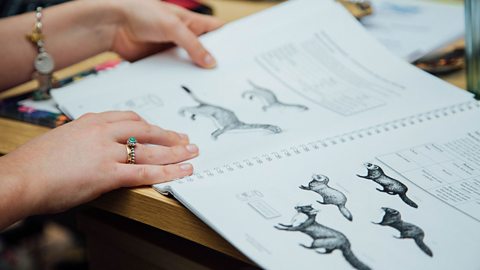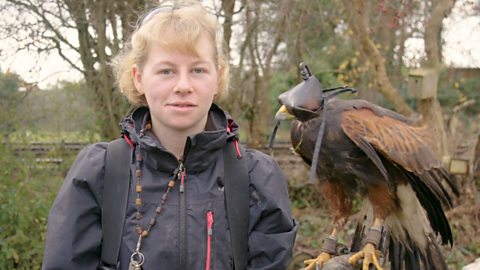Meet Gabrielle. She's 24, from Hull, and is a graduate ecologist at RammSanderson. Part of our Bitesize world of work series.

I love working outside. When you actually see the animals you really appreciate what our countryside has.
What does your job as an ecologist involve?
During the summer, my job involves doing what we call 'phase one habitat surveys'. This is where we go out and survey specific environmental conditions, looking for protected species, like bats and badgers. Once we find them, we work out ways to protect them from human activity and development.
During the winter, my job is very desk-based. My daily tasks involve writing reports and licences.

Did you always know you wanted to do this job?
Definitely not. I didn’t even know it existed when I was at school! I always knew that I wanted to work with animals and the obvious route was to become a vet.
I volunteered with lots and lots of organisations, including local ones, and also with orangutans in Borneo while I was travelling. It became clear to me that I didn’t really want to be a vet, I wanted to help conserve animals instead.

What skills do you use in your work?
A lot of my work is based on being able to identify common plants, mammal signs and bat calls, so subject knowledge is very important. I draw on the plant biology that I learnt in school a lot – it's just as important as animal biology.
I need to use lots of soft skills too. Organisation is important as I have to meet deadlines for getting reports to clients. Time management is also important as I have to juggle my workload – I might be managing three different reports at once, and also have field surveys to do. Teamwork is also really important because we never work alone and ICT skills too because I use the computer every day.

What was your educational career path?
At GCSE I took triple Science and that was really helpful because we went into a lot of depth in each subject (Physics, Chemistry, and Biology). At A-level I took all three sciences and History. Biology was the critical one for this job, but I don’t think I’d be as good at writing reports without History.
Then I went to university and did a degree in Zoology – that was the best experience of my life! I’m currently doing an online master's degree in Biodiversity, Wildlife and Ecosystem Health.
It took me a long time to become an ecologist. Alongside my degree, I did lots of volunteer work and training courses in things like mammal identification. This really helped me to get ahead in this type of work.


Top tips
Try everything. You don’t know what you’re going to fall into or what you'll really like
Get as much work experience as you can. This is a hard industry to get into, but it's easier if you have a lot of experience and some transferable skills. It makes you more desirable to employers
It can be demoralising sometimes to go for interviews and not be offered the job, but if you know what you want, you have to just persevere and keep going.

What to expect if you want to be an ecologist
- Ecologist average salary: ÂŁ22,000 - ÂŁ42,000 per year.
- Ecologist typical working hours: 39 to 41 hours per week. You could work evenings and weekends occasionally.
What qualifications do you need to be an ecologist?
You could get into this role via a university course or a degree apprenticeship. You'll usually need two to three A-levels, or equivalent, for a degree or degree apprenticeship. Alternatives to A-levels include taking a T-level (England-only), which is equivalent to three A-levels. Check with your course provider which alternative qualifications they accept.
Sources: LMI for All, National Careers Service,
This information is a guide and is constantly changing. Please check the for the latest information and all the qualifications needed and the for more on T-levels.
For careers advice in all parts of the UK visit: , , and .


Find work experience placements with Workfinder.
Tips and advice
Help with interviews, writing a CV and all things work experience related.


Florrie: bird of prey specialist. video
Florrie runs her own falconry business.

Lucy: vet
Lucy uses her knowledge of Biology in her job as a vet.

Jade: apprentice conservation officer. video
Jade's apprenticeship focuses on helping the environment to thrive as much as possible.
